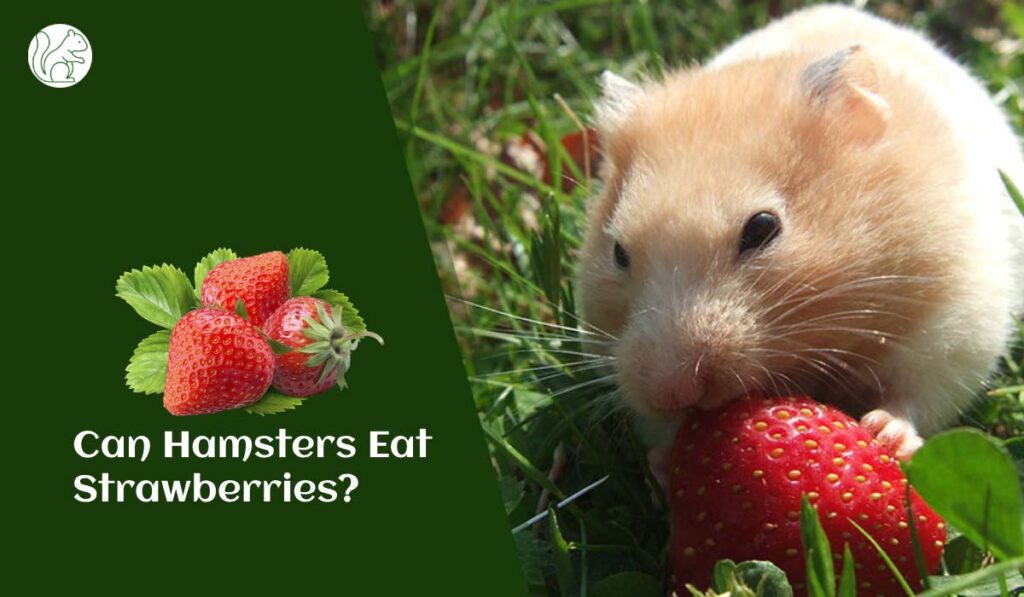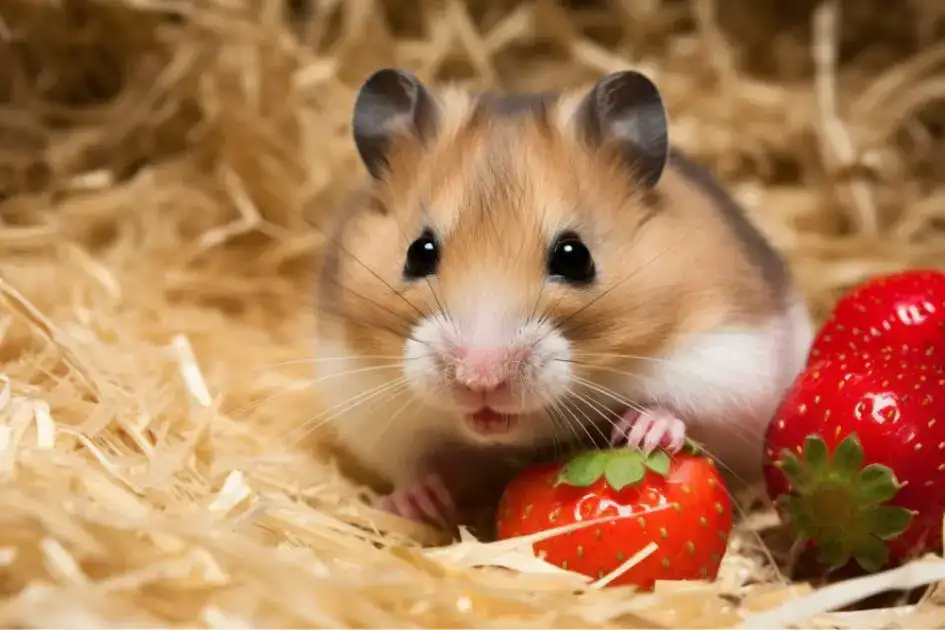When it comes to caring for our beloved hamsters, their diet plays a crucial role in ensuring their overall health and well-being. As responsible pet owners, we often wonder about the safety of certain foods for our furry friends. One common question that arises is whether hamsters can eat strawberries. In this article, we will explore the suitability of strawberries as a treat for hamsters and provide you with comprehensive information to make informed decisions about your pet’s diet.

Nutritional Value of Strawberries
Strawberries are not only delicious but also packed with essential nutrients. They are a rich source of vitamin C, which helps support the immune system and promotes healthy skin. Additionally, strawberries contain dietary fiber, manganese, and various antioxidants that contribute to overall well-being. However, it is important to note that while strawberries offer some health benefits, moderation and careful consideration are key factors when introducing new foods to your hamster’s diet.
Can Hamsters Safely Consume Strawberries?
The answer is yes, hamsters can enjoy strawberries, but with certain precautions. Strawberries should be considered as an occasional treat rather than a staple food in their diet. Here are a few key points to keep in mind:
1. Portion Control
When offering strawberries to your hamster, it is essential to control the portion size. Hamsters have small stomachs, and consuming large quantities of strawberries or any other food can lead to digestive issues. A small piece, around the size of a thumbnail, is sufficient as an occasional treat.
2. Fresh and Organic
Always choose fresh and organic strawberries for your hamster. Avoid using strawberries that are overripe, moldy, or have been treated with pesticides. Opting for organic strawberries reduces the risk of exposing your hamster to harmful chemicals.
3. Preparation
Before serving strawberries to your hamster, ensure they are thoroughly washed and cleaned. Remove the green stem and leaves, as they can be a choking hazard. It is recommended to cut the strawberry into small, bite-sized pieces to prevent any potential choking incidents.
4. Monitor for Allergies
Just like humans, hamsters can also have allergies or sensitivities to certain foods. When introducing strawberries for the first time, closely observe your hamster for any adverse reactions such as diarrhea, vomiting, or behavioral changes. If you notice any negative symptoms, discontinue feeding strawberries immediately and consult a veterinarian.
The Benefits of Strawberries for Hamsters
While strawberries should be given in moderation, they do offer a few health benefits to our hamster companions when incorporated appropriately into their diet. Here are some advantages:

1. Vitamin C Boost
Strawberries are a fantastic source of vitamin C, an essential nutrient for hamsters. As hamsters cannot produce vitamin C naturally in their bodies, they rely on dietary sources to meet their requirements. Including strawberries as an occasional treat can help fulfill their vitamin C needs and promote a healthy immune system.
2. Antioxidant Support
The antioxidants present in strawberries can aid in neutralizing harmful free radicals in your hamster’s body. This can potentially help reduce the risk of certain diseases and support overall well-being.
3. Dietary Enrichment
Introducing different textures and flavors to your hamster’s diet can provide mental stimulation and prevent boredom. Offering strawberries as an occasional treat can be an exciting addition to their usual food repertoire, keeping them engaged and happy.
Potential Risks and Considerations
While strawberries offer some benefits, it is crucial to be aware of the potential risks and take necessary precautions:
1. High Sugar Content (Continued)
Excessive consumption of strawberries, due to their high sugar content, can lead to weight gain and potential dental issues in hamsters. It is important to remember that hamsters have small bodies and require a balanced diet to maintain optimal health. Therefore, moderation is key when offering strawberries or any other sweet treats.
2. Digestive Sensitivity
Hamsters have sensitive digestive systems, and sudden changes in their diet can cause gastrointestinal distress. When introducing strawberries, start with a small amount and closely monitor your hamster’s response. If you notice any digestive issues such as diarrhea or bloating, it is best to avoid feeding strawberries in the future.
3. Oxalates
Strawberries, like many other fruits and vegetables, contain oxalates. Oxalates are natural compounds that can potentially contribute to the formation of kidney stones in some animals, including hamsters. While the oxalate content in strawberries is relatively low, it is advisable to limit their intake to minimize any potential risks.
A Balanced Diet for Hamsters
To ensure the overall well-being of your hamster, it is crucial to provide a balanced and varied diet. While strawberries can be a delightful occasional treat, they should not replace the staple foods that make up the majority of your hamster’s diet. A well-rounded diet for hamsters typically includes:
1. Commercial Hamster Pellets
High-quality commercial hamster pellets should form the foundation of your hamster’s diet. These pellets are specially formulated to provide the necessary nutrients and can be easily found in pet stores. Ensure the pellets are fresh, and choose options that are appropriate for your hamster’s specific breed and age.
2. Fresh Vegetables
A wide variety of fresh vegetables should be offered to your hamster regularly. Leafy greens like spinach, kale, and romaine lettuce can provide essential vitamins and minerals. Other suitable vegetables include carrots, bell peppers, and cucumbers. However, it is important to introduce new vegetables gradually to prevent digestive upset.
3. Limited Fruits and Treats
Fruits, including strawberries, should be considered as occasional treats rather than daily staples. Besides strawberries, safe fruit options for hamsters include small pieces of apple, banana, blueberries, and melon. Remember to cut them into small, manageable pieces and remove any seeds or pits that could pose a choking hazard.
4. Fresh Water
Clean, fresh water should always be available to your hamster. Ensure that the water is changed daily and provided in a spill-proof water bottle or shallow dish.
Conclusion
In conclusion, hamsters can enjoy strawberries as a delightful occasional treat, given in moderation and with proper precautions. Strawberries offer vitamin C and antioxidants, which can be beneficial for hamsters’ overall health. However, it is important to control portion sizes, choose fresh and organic strawberries, and closely monitor your hamster for any adverse reactions.
Remember that a balanced diet consisting of commercial hamster pellets, fresh vegetables, and limited fruits/treats is essential to meet your hamster’s nutritional needs. By providing a well-rounded diet and ensuring your hamster’s safety, you can contribute to their long and happy life.
